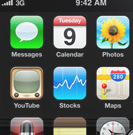Google lowers 'unusually high' early termination fee on Nexus One
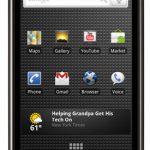
At the end of January, the Federal Communications Commission's Consumer Task Force launched an inquiry into the Early Termination Fees (ETFs) of the major wireless providers with a special focus on the Google Nexus One handset.
The Nexus One is unlike other smartphones in that it is sold only by Google and available on multiple carriers. As such, if a customer terminated his contract, he faced early termination fees from both Google and his wireless provider.
Netgear and Ericsson introduce a mobile broadband hotspot with a twist

We have seen a couple of mobile broadband hotspots come to market in the last year, the Novatel MiFi on Sprint and Verizon, and the recent Sprint Overdrive from Sierra Wireless. They're pocket-sized, battery-powered devices with a 3G connection that can connect a handful of devices to the Internet wherever they're plopped down.
Today, Netgear and Ericsson announced that they have created a 3G mobile broadband-connected router like these devices, except that it's not pocketable and battery powered.
Report: Streaming video drove 72% global increase in mobile data consumption

A new study from subscriber management company Allot Communications today says that worldwide mobile broadband consumption increased approximately 72% in just the second half of 2009.
Though the Federal Communications Commission is worried that there won't be enough bandwidth in the United States to support the growth in mobile broadband use, the Americas are actually being outpaced by both the Asia Pacific region (APAC) and the Europe/Middle East/Africa region (EMEA) in terms of growth rate. APAC experienced an 86% growth in mobile broadband consumption, and EMEA experienced 70% growth, while use in the Americas grew by 59%.
Wolfram|Alpha makes a strong argument for virtual keyboards

I don't keep my personal preference for mobile devices with physical keyboards a secret; the sensation of hitting real keys is an indivisible part of the text entry experience for me, and it's not likely to change any time soon.
But there is one area where physical keyboards are woefully inferior to virtual ones: adaptability. A virtual keyboard can represent any alphabet or be arranged in any configuration the user or software needs, and a physical keyboard simply can't keep up with that.
Motorola Droid gets its first official multi-touch gesture
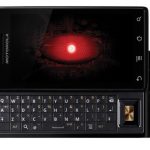
The Droid has gotten pinch-to-zoom in Google Maps.
Immediately after Google introduced the multitouch gesture on the HTC Nexus One browser, photo gallery, and maps applications, owners of the popular Motorola Droid began to ask if their devices would receive the same update, since it is widely known to support multi-touch input.
Original Xbox being phased out of Xbox Live online play, but alternatives exist

Microsoft today confirmed the long-running rumor that support for the original Xbox will be terminated on the Xbox Live online game servers. The company announced that April 15, 2010 will be the last day legacy Xboxes will be able to play on Xbox Live.
"This isn't a decision we made lightly, but after careful consideration, it is clear this will provide the greatest benefit to the Xbox Live ommunity," Marc Whitten, General Manager of Xbox Live announced today. Whitten noted that Halo 2, a version of the popular first person shooter for the original Xbox still retains a dedicated community of players.
Apple asks developer to remove Android mention from App Store
ISPs are not responsible for illegal downloading, says Australian court

Australian federal courts have decided that the country's second largest ISP, iiNet, is in no way responsible for the illegal actions of its subscribers.
In 2008, iiNet was sued by more than 30 film and television industry companies for copyright infringement; or more accurately, for the copyright infringement of its customers using BitTorrent to download pirated content. The group alleged that iiNet failed to take appropriate measures to stop customers from illegally sharing files with the P2P software.
Symbian now 100% open source, and looking for developers to fill in the gaps
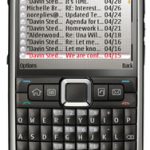
The world's most widely-used smartphone platform is now completely free and open. Today, the Symbian Foundation announced that the entire 33 million lines of Symbian^3 code is now free under the Eclipse Public License.
The platform was only sort of open source before...sort of. When the Symbian Foundation launched in 2009, parts of the source code were made available to members of the foundation under a transitional license.
SlingPlayer Mobile for iPhone okayed for 3G streaming

The $30 iPhone app which lets users watch content from their SlingBox "placeshifting" set top box will finally be un-crippled, Sling Media Inc announced this morning.
Like many other potentially bandwidth-hungry applications on Apple's iPhone, SlingPlayer Mobile for iPhone was only cleared for use over Wi-Fi. When users wanted to watch content from their Slingbox SOLO, PRO-HD, or PRO on the go, they could only do it at a Wi-Fi hotspot. Users of the BlackBerry, Windows Mobile, Palm, and Symbian versions, meanwhile, did have 3G access.
Comcast to rebrand cable, Internet services as Xfinity

If you're one of the more than 25 million Comcast subscribers, the bill you get next month may be for a service called Xfinity.
Beginning February 12, Comcast will begin rebranding its cable, Internet, and digital voice services in 11 markets under the Xfinity name, which it first debuted in December when the company began the process of acquiring NBC Universal.
Tetris TV: A look at the weird places we've stuck Tetris
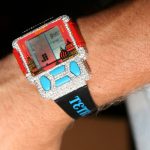
True story: When I was a freshman in college in the late '90s, my roommate and I had an NES in our dorm room that people would come over and play with. Though we had just reached the 64-bit era of consoles at that point, people loved to come play games from our formative years and socialize.
Everything was fine and fun until somebody gave us a Tetris cartridge.
Buffalo Technology tweaks its mini network drive to perfection
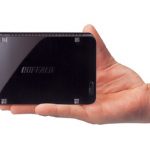
Buffalo Technology's LinkStation Mini dual-drive network storage solution has been looked upon quite favorably. Om Malik called it "almost perfect", and its startlingly tiny profile (only 1.6" x 3.2" x 5.3") and quiet operation earned it high marks across the board.
Besides the somewhat high price of the unit, the only complaint users and reviewers seemed to have with the LinkStation was its rather unwieldy Web-based user interface.
Online video is not a complete solution, says study

Though it seems like streaming TV services are getting more diverse and robust by the week, Parks Associates today said the number of people who consider them a viable replacement to their cable or satellite subscriptions is actually shrinking.
According to the consumer research firm's "All Eyes on Video" study, the percentage of broadband-connected homes that would consider canceling their pay TV subscriptions in favor of online video has steadily declined for the last two years.
Motorola launches its next Android-based device on Verizon

Since well before Motorola released even its first Android device, a render of a seafoam green and silver slider phone called "Calgary" was floating around the Android blogs. It wasn't until today that Motorola officially announced this phone. Now known as Devour, the new Android device will be available on Verizon Wireless in March.
Looking like the slightly smaller cousin of the popular Droid, Devour is Verizon's third Android phone, and first that carries Motorola's trademark MotoBLUR interface (built upon Android 1.6). In many respects, Devour looks quite a bit like the Droid, except with specs a little lighter to encourage affordability. The display, for example, is a 3.1" HVGA capacitive touchscreen with 320 x 480 resolution instead of 3.7" (480 x 854); and the camera is 3 megapixels instead of 5.
Tim's Bio
Tim Conneally was born into dumpster tech. His father was an ARPANET research pioneer and equipped his kids with discarded tech gear, second-hand musical instruments, and government issue foreign language instruction tapes. After years of building Frankenstein computers from rubbish and playing raucous music in clubs across the country (and briefly on MTV) Tim grew into an adult with deep, twisted roots and an eye on the future. He most passionately covers mobile technology, user interfaces and applications, the science and policy of the wireless world, and watching different technologies shrink and converge.
© 1998-2025 BetaNews, Inc. All Rights Reserved. About Us - Privacy Policy - Cookie Policy - Sitemap.

